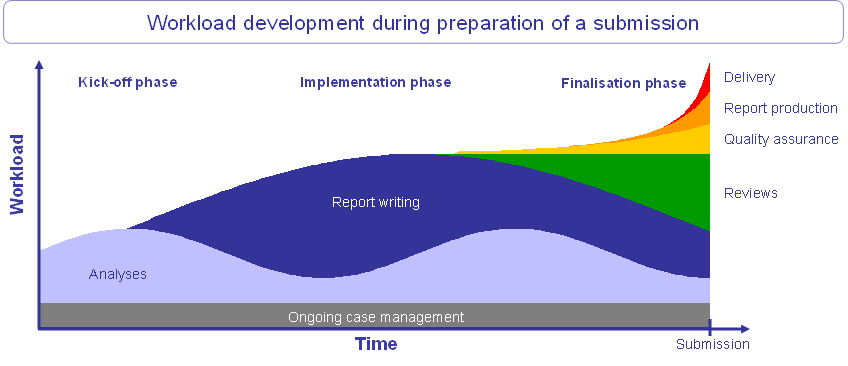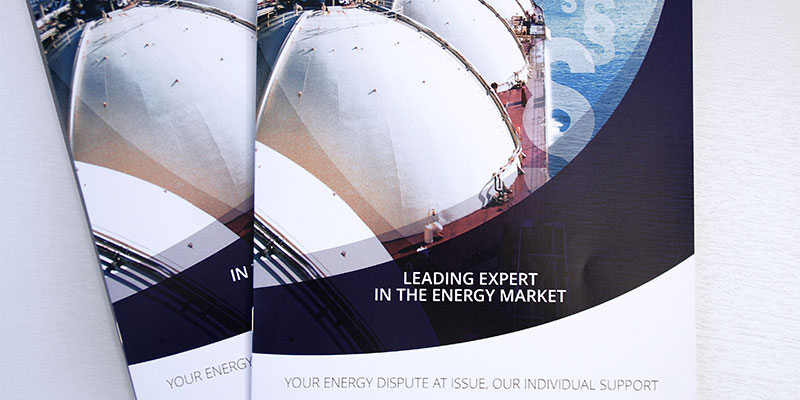Dispute Resolution / Arbitration
Content
- Why should you rely on Team Consult's expertise in dispute resolution and arbitration proceedings?
- What determines success in arbitration proceedings?
- Why is arbitration relevant to the energy industry?
- Typical issues in energy industry related arbitration proceedings
Team Consult is a member of the German Arbitration Institute (Deutsche Institution für Schiedsgerichtsbarkeit e.V., DIS)
Why should you rely on Team Consult's expertise in dispute resolution and arbitration proceedings?
Extensive experience as an expert witness in arbitration tribunals
Team Consult has supported energy companies in countless national and international arbitration proceedings over the past 20 years.
We have worked on behalf of claimants and defendants under different arbitration rules (ad hoc proceedings, D.I.S. proceedings, ICC proceedings) and in various settings as an expert witness (and in an individual case also as party-appointed arbitrator).
Comprehensive knowledge of markets and commercial practices
We advise our clients on contentious energy industry issues arising from supply and service relationships in the context of current market developments. We prepare expert reports based on our market analyses, provide support in legal proceedings and are available to testify as experts before arbitration tribunals. Team Consult supports the parties in resolving contractual disputes before and during the entire proceedings.
Execution competence and excellent value for money

Our knowledge of national and international markets and our long-term experience as experts in arbitration proceedings are a solid basis for convincing the arbitral tribunal with hard facts and conclusive arguments. Our customers attest to our excellent value for money and our high degree of adherence to deadlines and quality of results.
What our clients say:
“We would strongly recommend Team Consult as experts in arbitration proceedings.”
“Mr. Kübler is an excellent expert witness with authority and experience to appear before a Tribunal and TC has a great team to support him in preparing expert witness reports and statements.”
What determines success in arbitration proceedings?
From the many disputes and arbitration proceedings in which Team Consult has been involved, we have learned that a proven approach is crucial. Experience is the key to success. Below, we present some important insights and describe best practices for arbitration cases.
Early assessment of the facts by commercial experts and legal counsel ahead of formal proceedings
Early assessment by external experts can prevent a party from filing a claim that would have no prospect of success. Both legal and economic experts should review the arguments presented. Have the markets really changed in the direction needed to make a case? What could be valid counterarguments?
Early preparation is also important on the part of the (potential) defendant. Building a strong defence in advance of possible arbitration proceedings can help to avert proceedings and achieve an advantageous settlement. A defence is most successful if it is not needed in court and no costs are incurred for proceedings.
Process experience is key
Support in dispute resolution is not just about providing expertise. It is also about being prepared for the unexpected. It is about deciding which arguments are important and presenting them convincingly before an arbitration tribunal.
Legal disputes require a team you can trust and rely on. Unlike in ‘normal’ consulting projects, there is no second chance. Choosing the right expert at the outset is crucial, as replacing them during ongoing arbitration proceedings carries enormous risks.
Strong case management team
The teams of internal and external specialists involved in contract negotiations and arbitration proceedings are often relatively small. The careful selection of specialists – both internal and external – is of high value, given the large amounts in dispute in many cases.
Ensure the availability of strong and competent internal resources and hire a strong external team for your dispute. Avoid hiring opportunistic experts who immediately adopt your point of view without critically challenging it. Instead, let the experts express their honest assessment. Although this requires more discussion and coordination in the early stages of the process, it is the only way to ensure that a strong and convincing case is presented to the tribunal.
Know your contract (and its history)
There are many approaches to ‘opening up’ a contract for adjustments. These can be contractual clauses (e.g. price revision clause, hardship clause) or legal provisions (e.g. in competition law or frustration of contract in contract law).
There are many ways to interpret such legal or contractual provisions: Which standard should be applied? How should it be applied? Is there an explicitly defined and agreed procedure?
We have often seen parties overstretch possible interpretations, thereby giving the impression that they want to ‘rewrite the contract.’ In our experience, these approaches have not proven successful – rather, success has been achieved by focusing on the contract language, supplemented by appropriate analyses and assessments.
Less can be more
One of the most important strategic questions from the perspective of both the claimant and the defendant is to what extent their own position should be ‘stretched’. Should the claimant make the highest possible claim? Should the defendant deny any claim for adjustment?
In our experience, arbitrators appreciate parties taking realistic positions and thereby help the tribunal to reach a reasonable judgement. Taking an extreme position is counterproductive (and can also lead to endless proceedings with additional pleadings and hearings).
Make it easy for the arbitrators to come to an appropriate decision. Don’t deny the obvious and thereby increase your overall credibility.
Don’t cut corners
Especially in times of volatile energy and raw material prices and a pressure to cut costs, companies are inclined to enter arbitration proceedings with a tight budget. While this is understandable, it carries great risks if cuts are made in the wrong areas.
In our experience, face-to-face meetings between clients, legal counsel and expert witnesses accelerate the team-building process and lead to a better mutual understanding of the respective views of the dispute, even if this takes time.
Similarly, the data required for analysis can be costly. Sometimes a party is reluctant to invest in data when it is unclear what insights it will yield. Although there are no guarantees, the cost of data from external sources is usually negligible compared to the financial process risk.
Plan milestones and meet internal deadlines
Short-term changes to the schedule are always possible. Sometimes, short-term changes to the scope of an expert opinion or a written pleading are also unavoidable.
And yet, precisely because of the possibility of such short-term changes, it is even more important to define clear milestones for the preparation of a written submission and the associated expert opinions in advance.
The deadlines for written submissions and expert opinions are binding in any case. However, internal deadlines during the preparation of draft expert opinions, feedback on them, etc. should also be treated with the same diligence.
If at all, last-minute interventions are only possible in a well-organised environment.

Do not close communication (negotiation) lines to counterparty
Legal disputes are often conducted with a certain degree of harshness. In your communication, make a clear distinction between the formal proceedings and the long-term relationship with your business partner, which should continue to function beyond the end of the proceedings.
Avoid closing communication channels for commercial negotiations.
Why is arbitration relevant to the energy industry?
Long-term nature of the business
Due to capital-intensive investments, the energy industry is characterised by long-term planning horizons and long-term contractual relationships. When concluding contracts, business partners must therefore anticipate certain future developments and take these into account when finding a contractual balance.
Unexpected developments
During the term of a long-term contract, it is not uncommon for underlying assumptions to be overtaken by new, unforeseen events and developments which may shift the balance of opportunities and risks in favour or to the detriment of one party.
Such unforeseen developments can lead to legal disputes over complex technical and commercial issues. If the contract in dispute is a continuing obligation, the time factor also plays an important role, as a disruption of the contractual balance can quickly become existential to one of the contracting parties.
Benefits of arbitration
Expertise of the court
A profound decision in an energy contract dispute requires the court to have the relevant background experience. The likelihood of the dispute being heard before a knowledgeable court is higher when the parties have a say in appointing the judges, which is generally the case under arbitration rules.
This is an important reason for the contracting parties to agree to resolving any contractual disputes through arbitration. Arbitration proceedings enable the parties to select judges with experience in energy law and industry knowledge as arbitrators.
Avoiding lengthy proceedings
By referring contract disputes to arbitration, the contracting parties avoid lengthy legal proceedings before a court of law which often involve appeals and relitigating at a higher court instance. This is because the arbitration clause in a contract generally entails the recognition of arbitral awards. Arbitral awards are generally final and cannot be appealed. Arbitration proceedings are therefore often perceived as a faster alternative to court of law proceedings, and they are also more flexible regarding the language and venue of the proceedings and the substantive law governing the contract.
Ensuring confidentiality
Disputes in the business-to-business sector often involve matters known only to very few people involved, even among the contracting parties themselves. Disclosure of this content, such as the agreed contract price and any adjustment modalities, would have an immediate adverse effect on the contracting party or parties, e.g. in negotiations or in competition with other companies. Arbitration clauses allow for ensuring the confidentiality of sensitive information throughout the proceedings.


